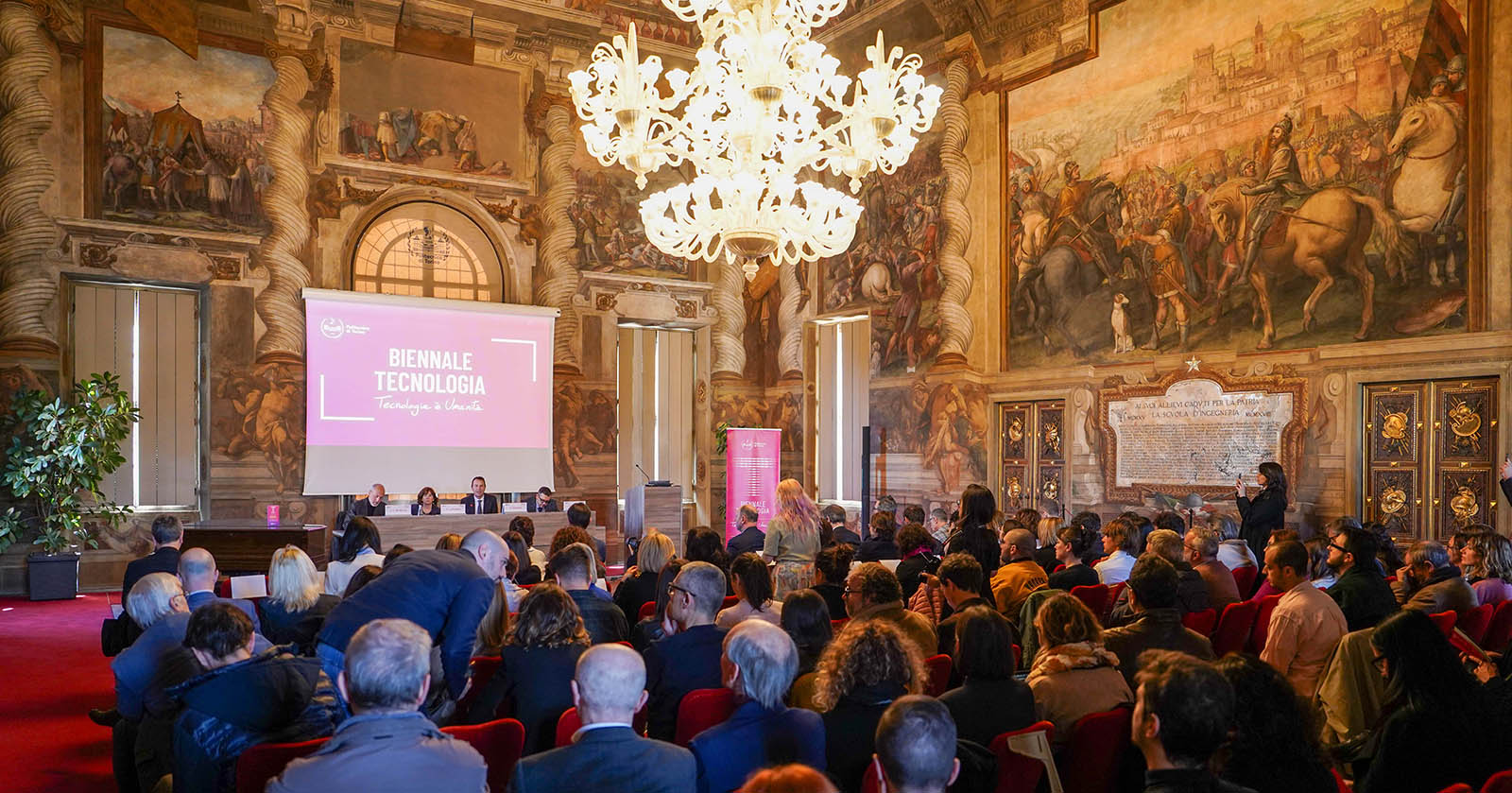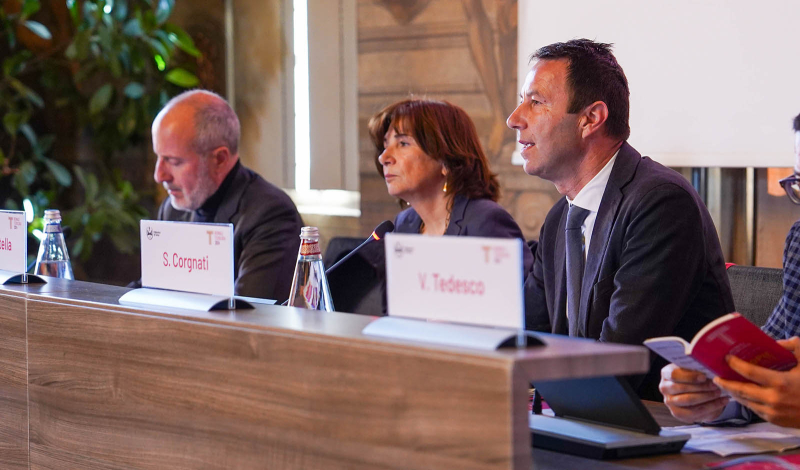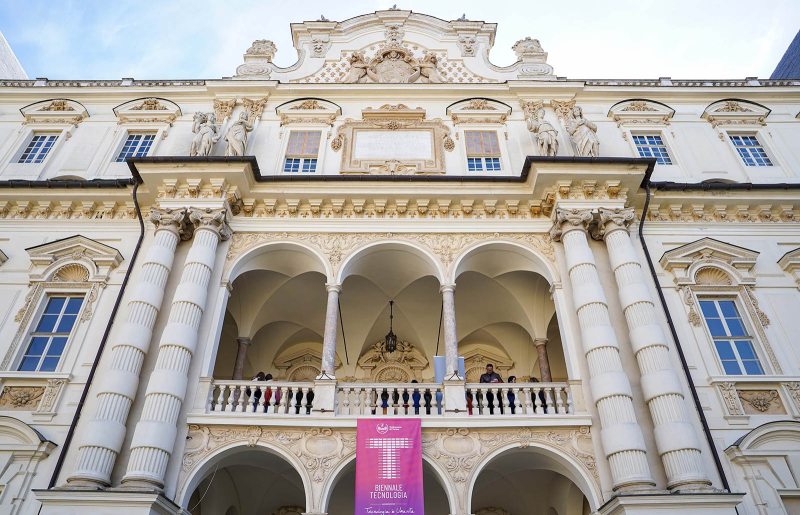Culture
The Courage of Realist Utopias
Biennale Tecnologia is about to begin, with Avio Aero once again at the side of the Politecnico di Torino, focusing on a crucial headline and a rich program that the new Rector explained us.
Apr 2024
The subalpine capital will once again be tinged with a bright pink from 17 April, and through the rest of the same week, for the fourth edition of the Biennale Tecnologia by the Politecnico di Torino. The event, born in 2019, is organized by the iconic engineering university – awarded for the fourth time with the prestigious recognition of the Gold Medal of the President of the Republic – and this year has chosen the title "Realistic Utopias".
The latter represents a "false oxymoron", as explained by the scientific curators Juan Carlos De Martin and Luca De Biase, which opens up the possibility of reading and interpreting what surrounds us with different eyes, of finding new solutions to complex problems, of reflecting concretely on alternative but plausible worlds. Utopia and realism are opposites that attract.
A very dense week that is divided between 25 city venues, supported by 70 cultural partners, with 160 appointments and meetings, about 280 guests from all over the world, over 60 exhibitions, activities and guided tours that will involve more than 700 middle and high school students in addition to the large turnout of university students, who will be organized into 17 teams that will present technological prototypes.
The program will be open to an audience of all ages, stimulated to imagine possible futures with freedom and courage, and with the aim of transforming ideas into projects, invited to cast their gaze towards future perspectives – courageous and concrete at the same time – to imagine together new possible worlds.
This year's Biennale Tecnologia explores the relationship between technology and society, amidst what scientists call a "polycrisis": a perfect storm of different and interconnected crises, during which it is impossible to rely solely on technique or technology because it will not be enough without the change in human vision and habits.
Also in the current year, in January, the Polytechnic University of Turin announced the new Rector, Stefano Corgnati, former Professor of Environmental Technical Physics at the "Galileo Ferraris" Energy Department with a brilliant career background. Over the years, Corgnati has held roles of increasing importance within the university (in the administrative, technological and sustainable research fields), as well as positions at foundations and consortia and institutional roles – he was mayor of Livorno Ferraris (VC) for two terms as well as a consultant to the Draghi government at the Ministry of Mobility and Sustainable Infrastructure.
Shortly after your appointment as Rector, you have the opportunity to experience the Biennale Tecnologia as a protagonist: what effect does it have on you and how are you preparing for this event?
"Biennale Tecnologia is the first major event that accompanies the beginning of my rector's mandate. I am very happy to inaugurate this event that over the years has grown and opened up more and more to citizens and the territory, becoming a point of reference for dialogue and discussion on the relationship between technology and society and how the effects of the former can bring benefits to the latter".
The program will be very dense, exciting and very varied, what would you recommend to young people, students and citizens or visitors from all over the world to enjoy the experience to the fullest?
"My advice is to explore the activities of the event with the curiosity of a traveler, because with Biennale Tecnologia we offer an interdisciplinary and transversal path between ideas and achievements: you will have the opportunity to listen to new points of view on urgent issues, to get to know our student teams and their projects, to savor our teaching with its modern training courses, to meet our researchers and visit our laboratories with them, where we carry out our research from basic to that with companies".
"I am a mechanical engineer, so I have always been fascinated by the high density of technological innovation in the aeronautical and aerospace sector, which has always inspired collaborations between companies and universities"
If we think about how technology has now permeated every area of human life, AI is certainly under the spotlight and is also at the center of the panel in which Avio Aero will participate, talking about the transport of the future. What is your perspective on this technology?
"Artificial Intelligence is a central theme today, which must be investigated, understood and managed in its potential, aware of critical aspects, including those of an ethical nature. The Politecnico has been present at national and international tables since the beginning to bring a scientific and organic contribution on the subject of AI: its development and application on the various areas of society can generate clear opportunities and risks to be faced. In the academic field, the effects on research and training are already the subject of a detailed study and are a key element of my mandate programme. A reflection that also extends to the use of AI in processes that affect both the industrial world and public administrations. In short, the development of generative AI requires a reconsideration of everything our university does, and how it does it. For this reason, a Study Commission will be set up in the coming months to analyze the impact of AI on our institutional missions."
Avio Aero and the Polytechnic University of Turin share a century-old history, a research partnership and a community of talents, scientists, professionals that over time has defined the industry and aviation itself: what affinity do you have with our sector and what does academia-industry collaboration mean to you?
"I am a mechanical engineer, so I have always been fascinated by the high density of technological innovation in the aeronautical and aerospace sector, which has always inspired collaborations between companies and universities. A collaboration with the business world that, for the Politecnico, has always been close and fruitful. Companies are asking us more and more clearly and decisively about their demand for technological innovation. This is a great asset for our university. The Politecnico must evolve more and more towards a model in which it responds as an 'integrated system' to the complex problems that the industrial sector poses, with knowledge that makes use of departmental knowledge in an interdisciplinary environment. A University system, coordinated and organized, strong in excellent teaching and research oriented towards technology transfer: a modern and international Polytechnic, a point of reference for the territory, the institutions and its production system".
Thinking about the first initiatives announced for your mandate, could you tell us about the interdepartmental center on aerospace that looks precisely at our sector?
"The aerospace sector has always been central to the University, encompassing knowledge that in fact brings contributions from all our departments, from infrastructure to electronics, from energy to materials science. Research, in order to be fully organic and oriented, therefore needs a transdisciplinary structure: the model of the interdepartmental centers of the Politecnico di Torino, of which our university was a pioneer in the Italian context, is a winning model to respond precisely to this need for interdisciplinarity. The interdepartmental center on aerospace responds to this need: a research play-ground where academia and business can find a way to express themselves and collaborate in the various areas of interest, from up-stream to down-stream. A place of common research and technology transfer, able to provide complete answers with an integrated approach to and with companies in the sector".
What takeaways would you like for every visitor, participant of Biennale Tecnologia, after April 21st?
"My wish is that Biennale Tecnologia can leave those who participate with the hope of imagining a better future for the new generations and our planet, with the evidence that technology is a tool to support society and its changes. And trust in technology, in its ability to guide us concretely and according to principles of fairness and sustainability towards this future".
Photos in page are courtesy of Politecnico di Torino © 2024.







